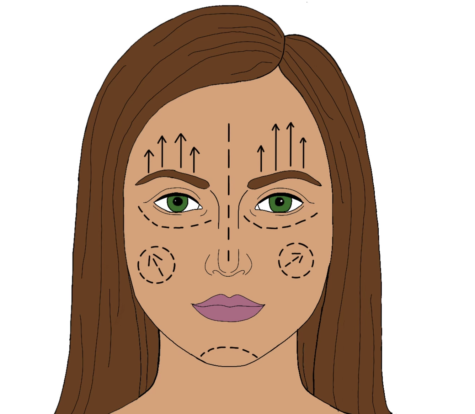OPINION | College plastic surgery epidemic

Between lip fillers, breast augmentations and the notorious Brazilian butt lift, the options for plastic surgery are numerous. What has changed, however, is the evolution of cosmetic plastic surgery procedures from something mostly celebrities and socialites engage with to a mainstream practice for college students. In one year, about 64,000 teenagers pursue an elective plastic surgery. This normalization of cosmetic surgery marks an era in which “perfection” is accessible, begging the question — is perfection a good thing in the first place?
The rise in influencers has significantly increased desire for plastic surgery. Influencers with young followings promote self-enhancement through minimally invasive procedures — like botox — to larger surgeries, like breast augmentation. Young girls throughout the country are exposed to rhinoplasties, breast augmentations and botox, and these procedures are more accessible and available to them. What results is an increasing opportunity for and pressure on young adults, teens and even preteens to adhere to the beauty standards around them, continuing a vicious cycle of comparison and conformity.
Tulane University seems to be a prime example of the accessibility of plastic surgery and its prevalence amongst the well-off. Tulane, which is ranked as one of the top 30 most expensive universities in the country, boasts an extremely high tuition rate and consequently, many students with backgrounds of wealth and privilege. In a campus and environment with children of CEOs, businessmen and entrepreneurs, the prevalence of cosmetic surgery is widespread and commonplace. Whether it be students with small “nose job” procedures — which typically only take 6 weeks to recover — or more extensive surgeries such as a breast augmentation, it is possible that many students at Tulane have undergone some sort of cosmetic surgery.
The issue with this prevalence of cosmetic procedures, however, is the message it sends to other young people regarding appearance and imperfections. On a college campus where the majority of students can “fix” what they may not like about themselves, it sends a message that there are parts of our external appearance which may need “fixing” in the first place. Further, the prevalence of cosmetic procedures on campus reinforces the sheltered life of wealthy communities, like Tulane, where it is seen as normal for money to be spent to “perfect” faces and bodies that were already perfect to begin with.
That being said, there are always the cases in which plastic surgery is helpful and can improve lives. Surgeries such as breast reductions or rhinoplasties in the case of a deviated septum can really improve the quality of life for the patient. Further, plastic surgery can be a great way of boosting the confidence of those who receive them and can greatly improve mental health. Either way, in today’s world, where elective cosmetic procedures are quite common, it is important to consider the reason why they are so, and ask ourselves if this is normal, or if it is good?
Your donation will support the student journalists of Tulane University. Your contribution will allow us to purchase equipment and cover our annual website hosting costs.


